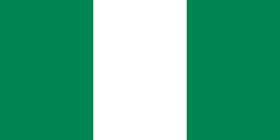 NIGÉRIA
NIGÉRIA
Tackling transnational crime in Nigeria
Strategically positioned at the intersection of West Africa and the Sahel, and flanked by the Gulf of Guinea, Nigeria is home to a population exceeding 216 million and shares 4,000 km of land borders with its four neighbours, Benin, Cameroun, Chad and Niger. This combination of geographic reach, demographic scale, and regional connectivity makes Nigeria both a key player in regional security and a focal point for transnational organized crime.
The country’s proximity to conflict zones, along with economic and social pressures, has created conditions that are often exploited by criminal networks. These groups take advantage of porous borders, complex population flows, and illicit financial opportunities to carry out offences that frequently extend beyond national boundaries.
As a result, Nigeria faces a wide range of interconnected crime threats, including:
- Terrorism and violent extremism
- Cybercrime and financial fraud
- Drug trafficking
- Human trafficking and smuggling
- Environmental crime
- Proliferation of small arms and light weapons
- Smuggling of counterfeit pharmaceuticals and goods
- Maritime piracy
- Kidnapping for ransom
Given the transnational nature of these threats, the role of the INTERPOL National Central Bureau (NCB) in Abuja is essential to Nigeria’s national and regional security strategies.
INTERPOL in Nigeria
The INTERPOL NCB in Abuja is part of the Nigeria Police Force and functions as the country’s primary platform for international police cooperation. It operates as both a strategic and operational hub, connecting Nigeria’s law enforcement agencies with INTERPOL’s global network and resources. NCB Abuja plays a critical role in supporting national and transnational security efforts by:
- coordinating international investigations and facilitating criminal intelligence-sharing through INTERPOL’s secure global police network;
- accessing and contributing to INTERPOL’s global criminal databases and using INTERPOL notices to support ongoing investigations;
- supporting Nigeria’s participation in INTERPOL-led regional and global operations;
- providing training and capacity-building support through workshops and collaborative programmes;
- Collaborating with a wide range of Nigerian agencies, including:
- National Drug Law Enforcement Agency (NDLEA)
- Economic and Financial Crimes Commission (EFCC)
- Nigeria Immigration Service (NIS)
- Nigeria Customs Service (NCS)
- National Agency for the Prohibition of Trafficking in Persons (NAPTIP)
- National Agency for Food and Drug Administration and Control (NAFDAC)
- Independent Corrupt Practices Commission (ICPC)
- Nigerian Navy
- Nigeria Correctional Service
NCB Abuja is headquartered at Louis Edet House in Abuja under the direct supervision of the Deputy Inspector-General of Police, Force Criminal Investigation Department (FCID). It also maintains a satellite office in Lagos, Nigeria’s commercial capital, to support operational outreach and coordination.
Law enforcement in Nigeria
Nigeria’s law enforcement architecture includes several specialized agencies, each tasked with addressing particular crime areas:
- Nigeria Police Force (NPF) – Lead agency for internal security, general crime enforcement, and public order, operating across all 36 states and the Federal Capital Territory;
- NDLEA – Focused on drug enforcement;
- EFCC and ICPC – Responsible for economic and financial crimes, including public sector corruption and money laundering;
- NAPTIP – Specialized in human trafficking and people smuggling;
- NIS and NCS – Managing border control and customs enforcement;
- NAFDAC – Regulating pharmaceuticals and consumer protection.
NCB Abuja operates within this national security structure as the formal link between Nigeria and INTERPOL’s global law enforcement community. Its work is fundamental to Nigeria’s fight against transnational organized crime and its commitment to regional and international police cooperation.










